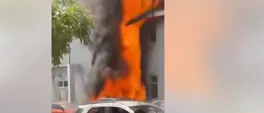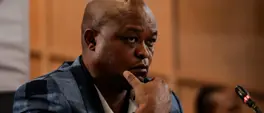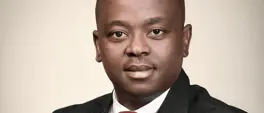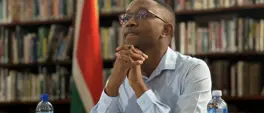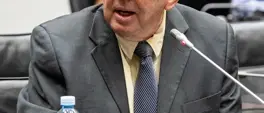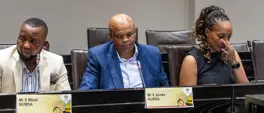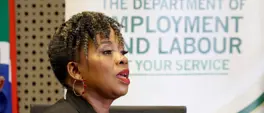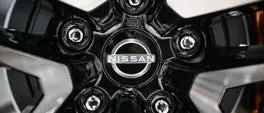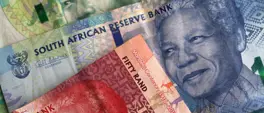Starlink plans R2bn investment to bypass BEE regulations and switch on the service in SA
Rafiq Wagiet
30 June 2025 | 19:41South Africa's regulations require an network operators to be 30% owned by previously disadvantaged groups.
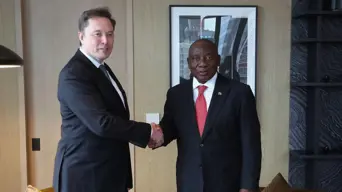
Tech billionaire Elon Musk (left) and President Cyril Ramaphosa at the United Nations General Assembly in New York, in the USA. Picture: GCIS
Stephen Grootes speaks to Jan Vermeulen, Editor at Mybroadband about Elon Musk's Starlink potentially investing R2 billion in South Africa to build regional infrastructure supporting the Southern African Development Community (SADC) region.
Listen to the interview in the audio player below.
Starlink could invest R2bn in South Africa if it gets a licence to operate in the country.
That money would be spent on developing a network of earth stations and data centres, helping to connect rural areas of South Africa that have little to zero internet connectivity.
Starlink is already active in several African countries, including Lesotho, Namibia, Zimbabwe and Mozambique, but remains unavailable in South Africa due to existing BEE regulations.
Starlink providing high-speed internet at home and on the go in Zimbabwe 🛰️❤️ https://t.co/ijM2bwRhEE
— Starlink (@Starlink) June 25, 2025
South Africa's regulations require an ICT company, network infrastructure operators and communications service providers to be 30% black-owned.
In May, South Africa’s Minister of Communications and Digital Technologies Solly Malatsi published a review of the B-BBEE licensing rules for satellite service providers, potentially opening the door for Starlink's entry into South Africa.
Speaking to Stephen Grootes on The Money Show, Jan Vermeulen, editor at Mybroadband says Starlink appears willing to invest in South Africa, with certain conditions.
Starlink's high-speed internet is now available in Lesotho! 🛰️🇱🇸❤️ → https://t.co/5oyvN7iBoR pic.twitter.com/FwSiKgHSIE
— Starlink (@Starlink) June 22, 2025
"There were many ways for Starlink to have launched in South Africa, which would've included partnering with local entities that already have the necessary licences. Selling 30% equity in the entity is not the only way to do it."
- Jan Vermeulen, editor - MyBroadband
"Other satellite providers have for years worked through middle-men in South Africa....there were various options in front of Starlink, but they really, really do not like the idea of middle-men."
- Jan Vermeulen, editor - MyBroadband
"They've chosen this way, where they want to launch directly in the country. They want their own licence, and that means that they have to wait for the necessary stuff to play out."
- Jan Vermeulen, editor - MyBroadband
Scroll to the top of the article to listen to the full interview.
Get the whole picture 💡
Take a look at the topic timeline for all related articles.

